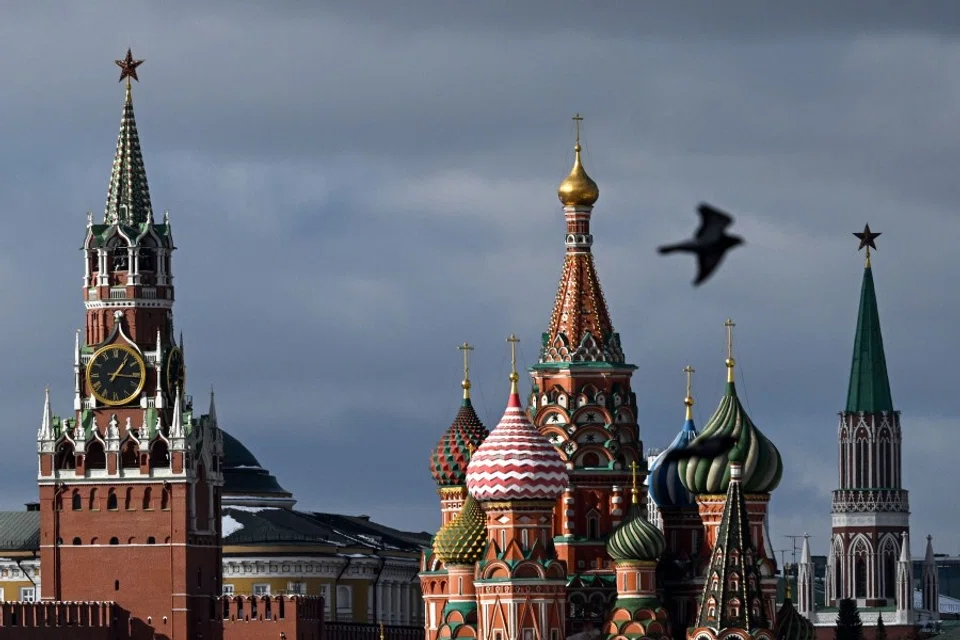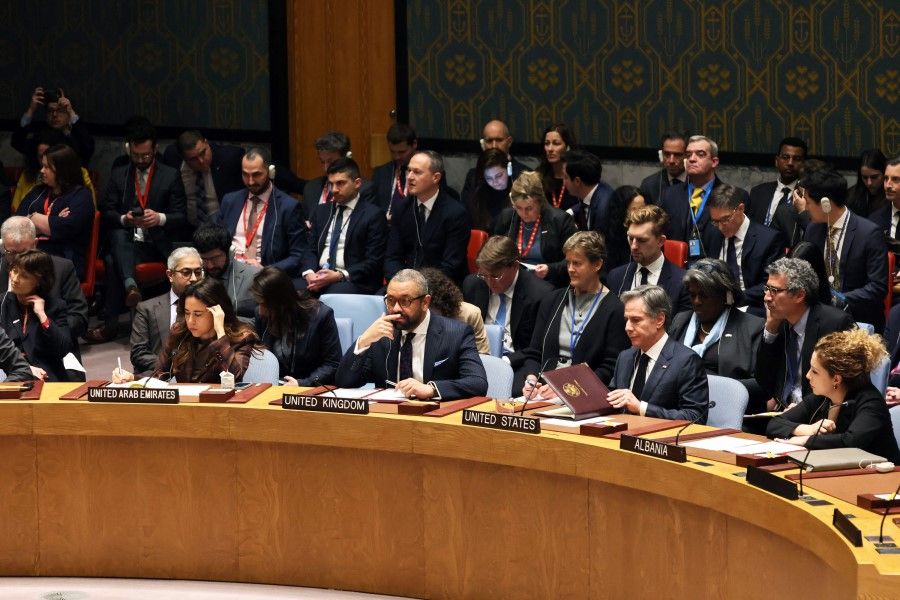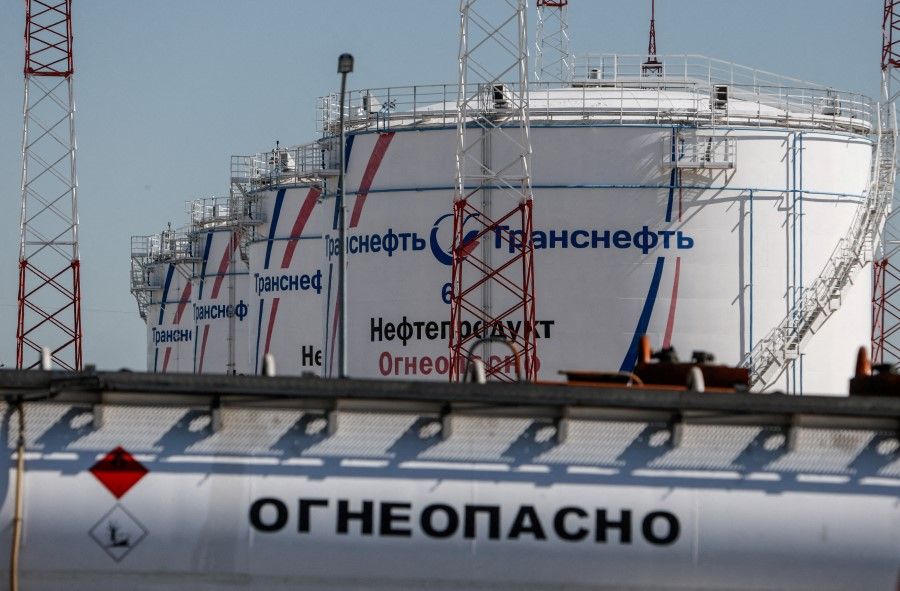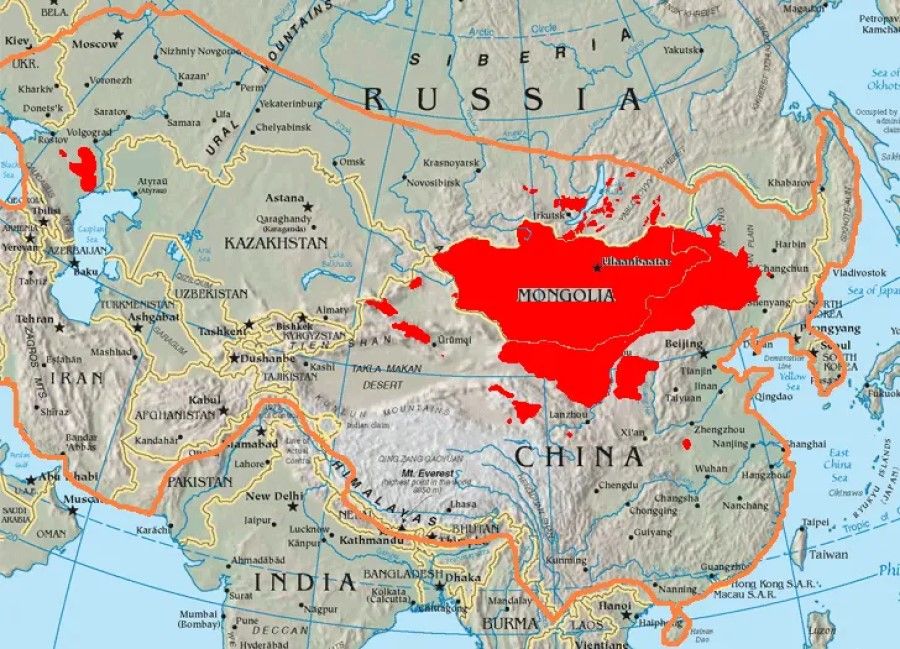Russia could decline into a failed state

On 23 February, the United Nations General Assembly eleventh emergency special session overwhelmingly passed the "Principles of the Charter of the United Nations underlying a comprehensive, just and lasting peace in Ukraine", reiterating its "demand that the Russian Federation immediately, completely and unconditionally withdraw all of its military forces from the territory of Ukraine within its internationally recognized borders, and calls for a cessation of hostilities".
Supporters of Russia?
In response, deputy chair of the Security Council of Russia Dmitry Medvedev repeated the threat of nuclear weapons and world destruction. On 25 February, Medvedev wrote in Izvestia that "[if] the question of the existence of Russia itself arises, it will not be decided on the Ukrainian front..."
He added, "We don't need a world without Russia... the past will have to be forgotten for centuries, until the smoky debris ceases to emit radiation... Western countries with satellites account only for 15% of the world's population. There are many more of us, and we are much stronger."
This is just one of the many times Russian officials have threatened nuclear catastrophe.
The strength of a country and its people does not lie in the size of its population or land area, but in the strength of its politics, technology, economy and culture. Medvedev's elementary-school level understanding that strength comes from a large population and land area ignores the fact that 141 countries voted for Russia to unconditionally withdraw from Ukraine during the UN emergency session.

Only seven countries voted against the resolution, including Russia, Belarus, North Korea, Eritrea, Mali, Nicaragua and Syria. Including Russia's population of 140 million, the seven countries have a total population of 229 million, which is less than the US population of 330 million. Besides, of the 141 countries that voted for the resolution, the EU and the US alone have a combined population of 777 million, over three times the population of the seven countries that voted against it. Even a kindergartener could tell which figure is larger.
It would be a linguistic misinterpretation, and a misrepresentation of the true intentions of the countries' actions and significance, if their absentions were considered support.
Perhaps Medvedev is counting votes of abstentions as support. Total population of those countries would indeed total more than the 141 countries that voted for the resolution. With about 1.4 billion people each, India and China alone would contribute a total of 2.8 billion people.
But do those countries really support Russia? They are in fact neutral. It would be a linguistic misinterpretation, and a misrepresentation of the true intentions of the countries' actions and significance, if their absentions were considered support. This is not based on the comprehension of a normal person.
What makes a powerful country
Many would agree that Russia is a mighty country only because it is the largest country in the world in terms of land size, at 17.1 million square kilometres. In fact, this is debatable because only 30% of its land or five million square kilometres is suitable for human habitation and the remaining 70% is covered by permafrost. The habitable area is smaller than the 7.5 million square kilometres or 80% in the US, or the 5.5 million square kilometres or 60% in China.
Some may believe that Russia's abundant natural gas and oil resources would make it bigger than most countries. According to BP, Russia's proven natural gas reserves stood at 37.4 trillion cubic metres or 19.9% of global proven reserves as of the end of 2020, putting it at the top of the list.
The necessary elements are morals, a system, the economy and technology. Russia does not match up to being a power in any of these areas and is in fact declining.

But having reserves is one thing - whether it can be extracted or whether there are consumers to buy and use it is another issue. A report by Russia's state-run Gazprom said that natural gas production in 2022 was down by 20% while exports were down by 45% following sanctions by the US and other Western countries. Oil production was down by 2% compared with before Russia's invasion of Ukraine, but the International Energy Agency forecast that when the EU ban on imports kicks in during the winter, the drop will increase to 13%.
Indeed, other countries such as India can take Russia's place in producing natural gas and oil - but energy is just the raw material. If it cannot be converted to technological innovation or the industrial economy, Russia cannot truly become a powerful country. The necessary elements are morals, a system, the economy and technology. Russia does not match up to being a power in any of these areas and is in fact declining.
Shadow of the Mongol empire
In terms of morals, abiding by universal values is the basis of a country becoming a power. The UN Charter emphasises these principles and rules, i.e. not to seize territory by armed force; not to violate another country's borders; not to attack civilians in war; and not to initiate an invasive war.
US Secretary of State Antony Blinken stressed, "If we do not defend these basic principles, we invite a world in which might makes right, the strong dominate the weak. That's the world this body was created to end."
The UN Charter is committed to ending a world where the law of the jungle prevails, in line with what most countries want. As it was written by summing up the decline and tragedies of bygone powers in human history, the Charter is also committed to equality and a free and happy life for all. Abiding by the Charter provides a state the chance of becoming a power, while giving the people freedom and happiness.
Russia once dominated the world by force and became a global power and the largest country in the world, but it inevitably would go into decline, becoming a failed state. Russia is currently the biggest and most aggressive country in the world; its largest land size was the result of invasion, brute force, killing and looting. However, Russia still comes in second in terms of land size when compared over the course of history.
At the height of its reign, the Mongolian empire stretched over more than 35 million square kilometres - the entire Eurasian continent itself spans 50 million square kilometres. In 1206, Temujin was named Genghis Khan at the Onon River. He built the Mongolian empire on horseback by conquering the Korean peninsula in the east, Poland and Hungary in the west, Siberia in the north and the Southeast Asian peninsula in the south.
... it will follow the path of the Mongolian empire due to its actions, and inevitably decline into a failed state and be forgotten by the world.

But after the death of his grandson Mongke Khan in 1259, the Mongol empire split into the four khanates: the Yuan dynasty in modern day Beijing, the Golden Horde in Eastern Europe, the Chagatai Khanate in Central Asia, and the Ilkhanate in Southwest Asia. By 1359, the Mongol empire had collapsed after only 153 years.
Of course, there are many reasons behind this decline, but fundamentally the invasion and expansion of the Mongol empire went against basic human morals. By expanding its territory through killing and looting rather than freedom and happiness, its rule was bound to fail. Russia has inherited the genes of the Mongolian empire, and despite 500 years of expansionist history and being the largest country in the world in terms of land size at present, it will follow the path of the Mongolian empire due to its actions, and inevitably decline into a failed state and be forgotten by the world. The reason is clear: Russia does not possess real hard and soft power that could satisfy itself and appeal to the world.
This article was first published in Lianhe Zaobao as "外强中干的俄国将沦为末流国家".
Related: What a weakened Russia would mean for China | The importance of Russia in China's foreign relations | Russia-China alliance: 'No limits' does not mean 'no bottom line' | Russia-Ukraine crisis: Can Russian aggression bring back the former glory of the Soviet Union? | Chinese academic: Ukraine war shows a corrupt Russia inside and out
